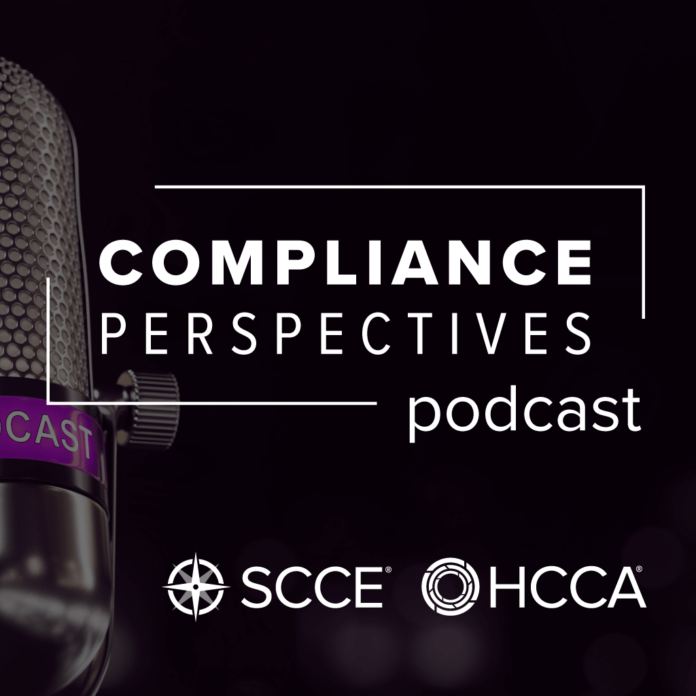Podcast: Play in new window | Download (Duration: 15:22 — 14.1MB)
Subscribe: Apple Podcasts | Email | TuneIn | RSS
Ethical leadership is about much more than being both ethical and a leader. It is also about the actions you take to encourage ethical behavior all around you.
It’s the subject of this podcast and a talk that will be given in March at the SCCE European Compliance & Ethics Institute by Steven Pegg, Senior Ethics Officer, Europe, Middle East & Africa for Lockheed Martin.
Ethical leadership comes with many challenges. Aggressive goals can cause executives to focus just on the task at hand and be tempted to cut corners. Studies have shown that positions of power can have an affect on behavior over time, leading to a loss of empathy, acts of disrespect, feelings of entitlement, selfish behavior and a tendency to think that the rules don’t apply to them. These factors can create a toxic culture not surprisingly.
Smaller offices also face the challenge of developing a subculture that can be inimical to ethical conduct. Lacking the controls of larger locations, unethical behavior may be left unchecked.
There is one other challenge to ethical leadership: a hesitance to talk about ethics. Some leaders, even virtuous ones, are uncomfortable discussing ethical issues.
To overcome these challenges ethical leaders need to develop several skills. These include:
- Setting the tone. People model what their leaders do. If a leader is comfortable telling stories and discussing ethical issues, it’s far more likely the rest of the workforce will be as well.
- Act as a positive role model. They must be accountable for their actions and both talk the talk and walk the walk. They also must respond fairly to both positive and negative feedback.
- Know their limits. When leaders have exhausted their own skill sets, they need to be willing to reach out to others for guidance.
How can executives exercise ethical leadership in a hybrid environment? Steven recommends being creative. Use technology when it is helpful, but look also to face-to-face, in-person interactions as well. Setting up regular check-ins with the team can be particularly useful.
At those meetings, encourage people to share their ideas on all the issues. It will make them feel more comfortable raising their hand, knowing they are in a safe environment.
Also, remember that different cultures around the globe have their own unique ways of seeing things and behaving. Take the time to understand those differences and communicate sensitively.
Finally, he discusses what to do when an employee comes forward with a concern. His central advice: listen, listen, listen.
Listen in for more and then be sure to join him at the 2023 SCCE European Compliance & Ethics Institute.


